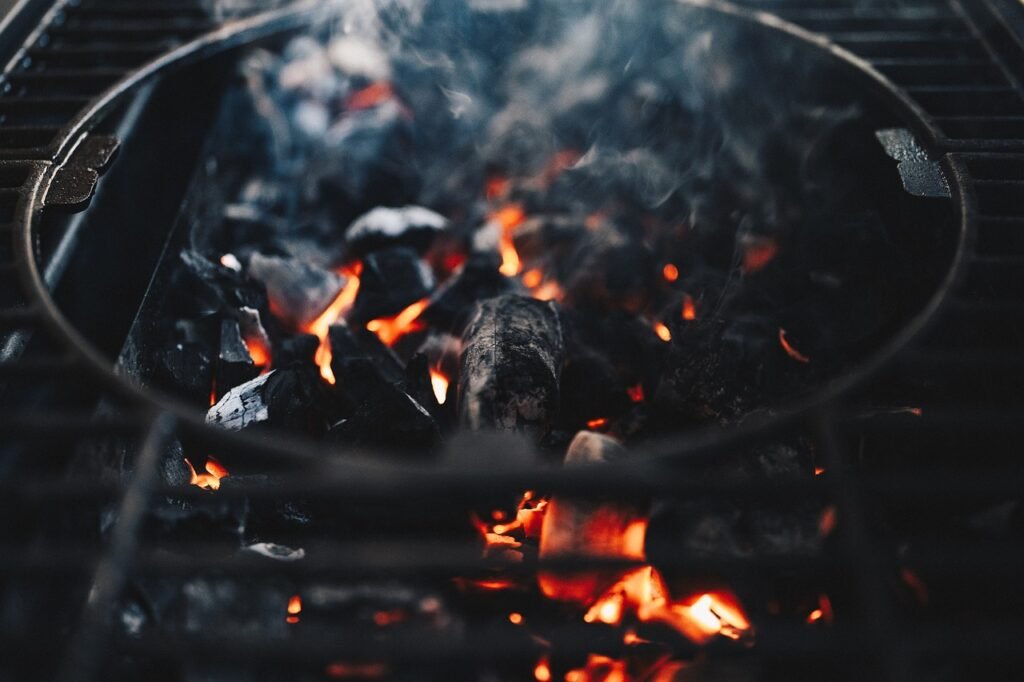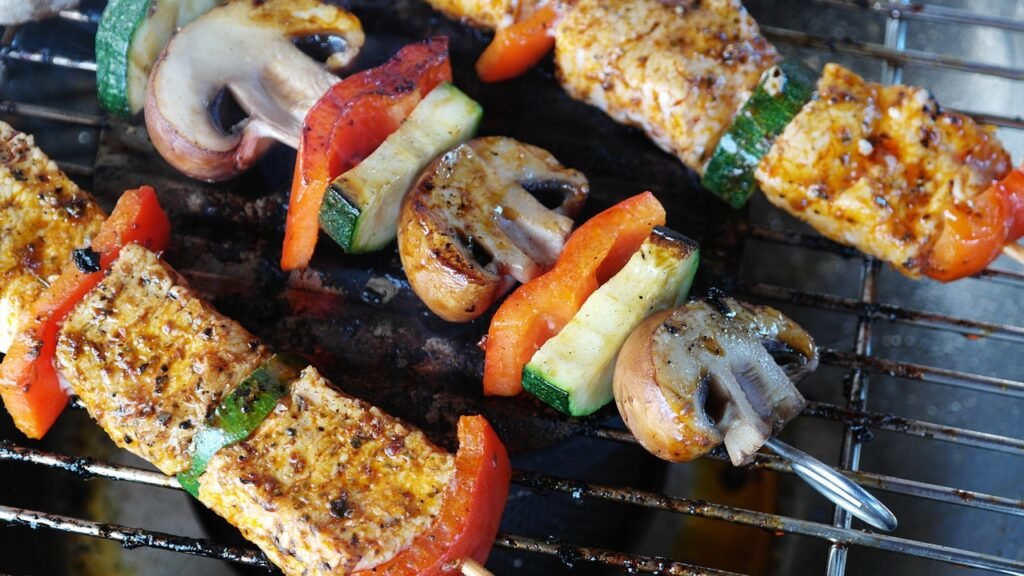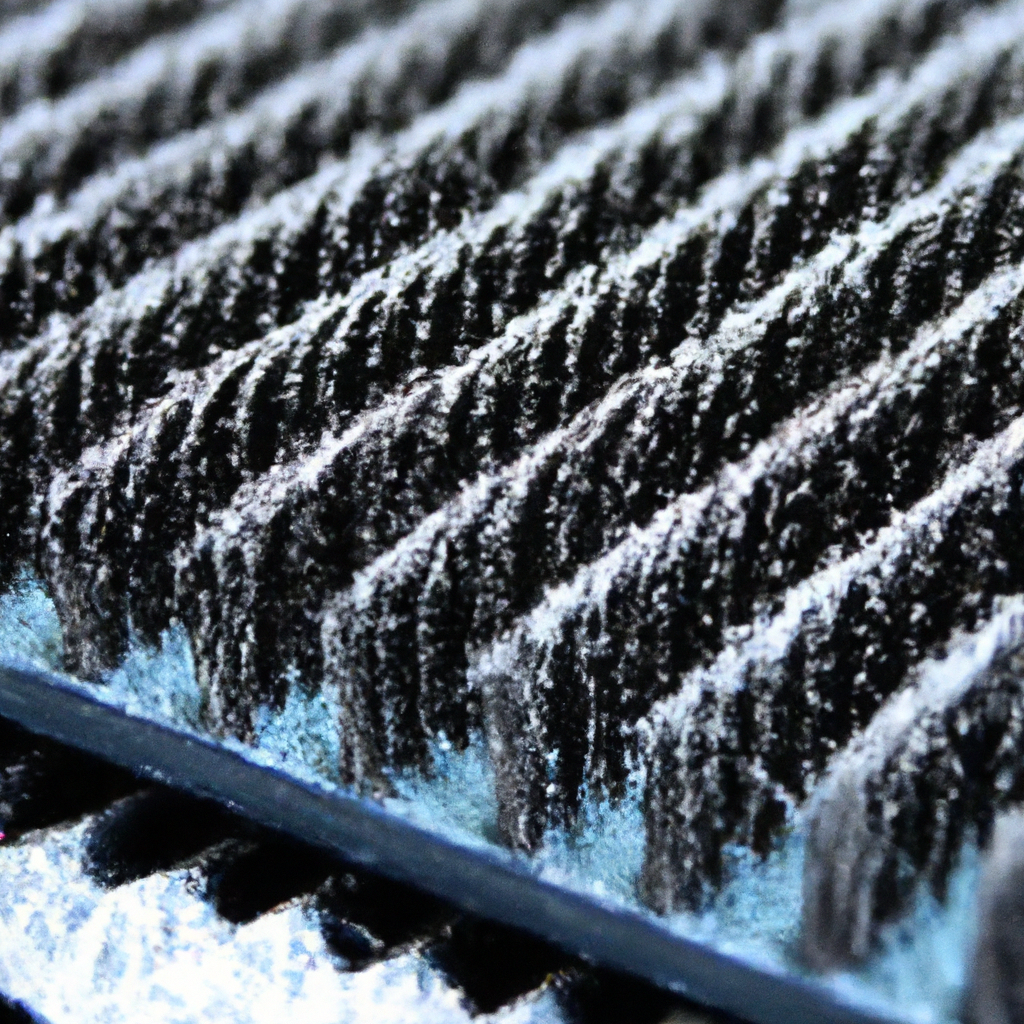Keeping your BBQ grill clean is essential for maintaining its functionality and prolonging its lifespan. Whether you’re a seasoned griller or just starting out, knowing the best methods to clean your BBQ grill can make a world of difference in your cooking experience. From removing grease and burnt-on residue to tackling stubborn stains, this article will provide you with practical tips and tricks to ensure your BBQ grill remains in top-notch condition. So grab your cleaning supplies, put on your apron, and let’s get your BBQ grill looking as good as new!

This image is property of pixabay.com.
Preparation
Before you begin cleaning your BBQ grill, it’s important to gather all the necessary supplies. You will need a wire brush, a grill cleaner, a degreaser, a soft cloth, mild detergent, warm soapy water, and grill grate brushes. It’s also essential to consider safety precautions to ensure a smooth cleaning process. Make sure to wear protective gloves and goggles to protect your hands and eyes from any potential hazards.
Cleaning the Grill Grates
To start the cleaning process, you first need to remove any excess debris from the grill grates. Use a wire brush to scrub off any food particles or residue that might have accumulated. This will help provide a clean surface to work with.
Once you have removed the excess debris, apply a grill cleaner specifically designed for BBQ grates. Follow the instructions on the cleaner’s packaging, generously spraying it over the grates. Allow the cleaner to sit for a few minutes to penetrate and loosen any stuck-on grease or residue.
After letting the grill cleaner work its magic, take your wire brush and scrub the grates thoroughly. Make sure to scrub both the top and bottom surfaces of the grates to remove any stubborn residue. Apply firm pressure while scrubbing to ensure a thorough clean.
Once you have scrubbed the grates, rinse them with water to remove any remaining cleaner and debris. This will leave your grill grates looking clean and ready for your next barbecue session.
Cleaning the Burner Tubes
To clean the burner tubes, begin by removing them from the grill. Depending on your grill model, this can usually be done by unscrewing a few nuts or screws that secure the burner tubes in place. Take care not to damage the tubes during this process.
Once the burner tubes are removed, use a wire brush to brush off any accumulated debris. This includes grease, food particles, and any other residue that may have built up over time. Be thorough in your cleaning, as clear and clean burner tubes are vital for proper grill performance.
While cleaning, it’s also important to check for any clogs within the burner tubes. Using a thin wire or pipe cleaner, carefully insert it into the tubes to ensure they are clear and unobstructed. If you encounter any clogs, use the wire brush to gently remove them.
After brushing off debris and checking for clogs, clean the burner tubes with warm soapy water and the wire brush. This will remove any remaining residue and leave your burner tubes in pristine condition.
Cleaning the Drip Trays
To clean the drip trays, start by removing them from the grill. Drip trays are typically located beneath the grill grates and catch any grease or drippings that fall during cooking. Carefully remove the trays to avoid spillage.
Once removed, use a scraping tool to scrape off any solidified drippings from the drip trays. This can be done gently to avoid scratching the surface. Dispose of the solidified debris properly.
Next, fill a sink or basin with warm soapy water and place the drip trays in it. Allow them to soak for a while, which will help loosen any remaining residue. After soaking, use a scrub brush or sponge to scrub away the remaining residue. Rinse the drip trays thoroughly to remove all soap and residue.

This image is property of pixabay.com.
Cleaning the BBQ Hood
To clean the BBQ hood, start by removing any visible debris from both the inside and outside surfaces. Use a brush or a soft cloth to wipe away any dust, cobwebs, or food particles. This step ensures that the degreaser can work effectively.
Next, spray a degreaser onto the BBQ hood, making sure to cover the entire surface. A degreaser is designed to cut through tough grease and grime, making it an essential part of the cleaning process. Allow the degreaser to sit for a few minutes to do its work.
After the degreaser has had time to penetrate and loosen the grease, take a soft cloth and wipe down the BBQ hood. Use gentle yet firm strokes to remove any remaining residue. Pay extra attention to any stubborn areas and ensure that the hood is thoroughly clean.
Cleaning the Exterior
To clean the exterior of your BBQ grill, start by wiping it down using a clean cloth. This will remove any dirt, dust, or grime that may have accumulated on the surface. For better results, you can dampen the cloth with warm soapy water or a mild detergent solution.
Once you have wiped down the exterior, focus on the metal parts of the grill. Metal parts can be polished to restore their shine and remove any fingerprints or smudges. Use a metal polish specifically designed for BBQ grills, applying it according to the product instructions. Polish the metal parts until they gleam, giving your grill a fresh and well-maintained appearance.

This image is property of pixabay.com.
Cleaning the Grill Grate Brushes
To clean your grill grate brushes, start by removing any loose debris from the bristles. Carefully tap the brush against a hard surface to dislodge any particles that may be stuck. Dispose of the loose debris properly.
Next, soak the brushes in warm soapy water. This will help to loosen any greasy residue and make the cleaning process more effective. Allow the brushes to soak for a few minutes, giving the soap time to work.
After soaking, use warm soapy water and a scrub brush or sponge to clean the grill grate brushes thoroughly. Scrub each brush individually, paying attention to the bristles and handles. Rinse the brushes to remove all soap residue, ensuring they are clean and ready for future use.
Reassembling the Grill
Once all the individual components of your grill are clean and dry, it’s time to reassemble them. Begin by replacing the grill grates and burner tubes. Make sure they fit securely and are properly aligned. Use the necessary screws or nuts to secure them in place.
Next, place the drip trays back into their designated spots beneath the grill grates. Ensure they are properly aligned and seated to catch any drippings during future use.
Finally, close the BBQ hood and ensure it is securely latched. This will prevent any unwanted debris or moisture from entering the grill and keep it protected when not in use.

Maintaining the Grill
To keep your BBQ grill in top condition, regular maintenance is essential. After each use, make it a habit to clean the grill thoroughly. This includes removing debris from the grates, wiping down the exterior, and cleaning any visible grease or residue.
When your grill is not in use, it’s important to cover it to protect it from the elements. Use a high-quality grill cover that fits your specific grill model. This will prevent dust, dirt, and moisture from accumulating and help extend the lifespan of your grill.
In addition to regular cleaning, periodic deep cleaning is beneficial. This ensures a more thorough removal of grease and grime that may have built up over time. Consider scheduling a deep cleaning session at least once a year or as needed, depending on the frequency of use.
Troubleshooting
Sometimes, despite your best cleaning efforts, stubborn stains may persist on the grill grates or other surfaces. In such cases, specialized stain removers or cleaning agents can be used to target the problem areas. Follow the instructions provided by the manufacturer of the specific product you choose to effectively remove the stubborn stains.
Rust can also be a common issue with BBQ grills, especially if they are exposed to moisture. To tackle rust, start by scrubbing the affected areas with a wire brush or steel wool. This will help remove any loose rust flakes. After cleaning, apply a rust converter or a rust-resistant coating to prevent further rust formation.
If you encounter burner tube clogs that cannot be removed through regular cleaning, it may be necessary to disassemble the burner tubes for a more thorough cleaning. Remove any debris or obstructions using a wire brush or a thin wire. Ensure all burner holes are clear before reassembling the burner tubes and testing the grill’s functionality.
By following these comprehensive cleaning and maintenance steps, you can keep your BBQ grill in optimal condition. A clean and well-maintained grill not only enhances your cooking experience but also extends the lifespan of your equipment. So, roll up your sleeves, gather your supplies, and get ready to give your BBQ grill the care it deserves!

